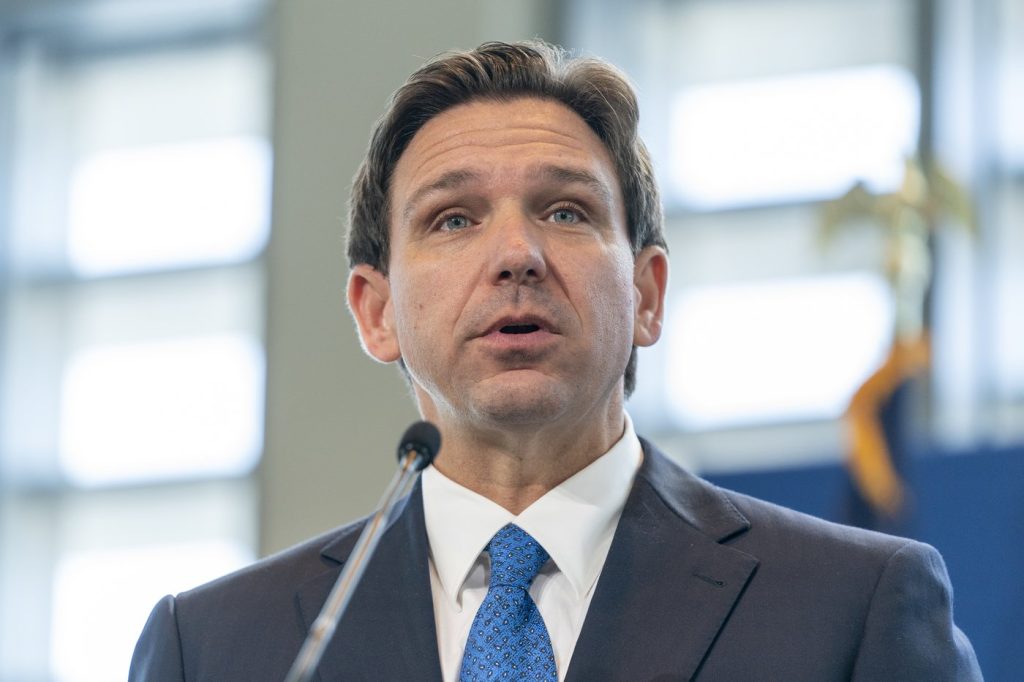TALLAHASSEE, Fla. (AP) — Florida lawmakers have passed a significant immigration bill, allocating half a billion dollars in public funds to bolster enforcement efforts in line with President Donald Trump's immigration policies. This legislation mandates that all levels of government, including contractors, must comply with federal immigration enforcement “to the fullest extent possible,” reflecting a robust response from the state's Republican-dominated Legislature.
During a special session that lasted over four hours, the 80-plus page bill, known as the Tackling and Reforming Unlawful Migration Policy (TRUMP Act), advanced primarily along party lines. The passage of this bill has sparked a conflict between Governor Ron DeSantis and state legislative leaders, with DeSantis publicly labeling the measure as “weak.” Republican Senator Joe Gruters, one of the bill's sponsors, indicated that a prominent aim of the legislation is to enhance coordination between local officials and federal immigration authorities to assist the President in enforcing immigration laws more effectively.
The bill was expedited through a special session, a time when public engagement in legislative processes is typically reduced. Interestingly, lawmakers modified the bill following requests for technical assistance from the Trump Administration. Amendments included imposing harsher penalties for crimes committed by unauthorized immigrants and establishing that individuals convicted of capital offenses should face the death penalty. However, some of DeSantis's proposals—such as restricting international money transfers for those residing in the U.S. illegally—were not included in the final version.
As the bill heads to DeSantis, he is faced with a dilemma: whether to sign a bill he has criticized as “toothless,” veto it entirely, or allow it to become law without his signature. The legislation aims to create a new state immigration enforcement office overseen by a chief immigration officer, a position appointed from the state's agriculture commissioner. This setup has raised concerns among critics, including DeSantis, who characterized it as “the fox guarding the hen house” due to the agriculture sector’s limited history of dealing with immigration enforcement.
Among the financial allocations designated by the bill, $100 million is set aside for grants to local law enforcement agencies for training and resources. Additionally, $375 million is earmarked for enhancing cooperation with federal authorities through programs that empower local law enforcement to act in federal immigration roles. Moreover, the measure proposes $25 million in bonuses for local officers who actively collaborate with federal immigration efforts.
Democratic legislators have fiercely criticized the bill, specifically the language demanding cooperation from government employees with federal immigration enforcement. Representative Christine Hunchofsky argued for clearer guidelines to prevent ambiguity regarding the extent of their cooperation. Senator Gruters conceded that the intent of the bill does focus more on engaging local officials in detention operations rather than enforcing policies on the streets.
A significant provision of the legislation is the repeal of a decade-old state law that allowed undocumented students to qualify for in-state tuition at public colleges and universities, impacting approximately 6,500 students. This reversal starkly contrasts the views held just a few years prior, when the law was championed by the state’s current lieutenant governor. Lawmakers received impassioned remarks from Democratic Senator Darryl Rouson, who highlighted the ethical implications of this legislative shift.
The passage of this immigration bill in Florida illustrates the increasingly contentious immigration politics within the state and across the nation, with Florida joining other states responding to Trump's immigration agenda. This significant shift in immigration enforcement and policy underlines the deep divisions within political leadership regarding immigration, as well as the evolving landscape of support for immigrant rights and opportunities.










